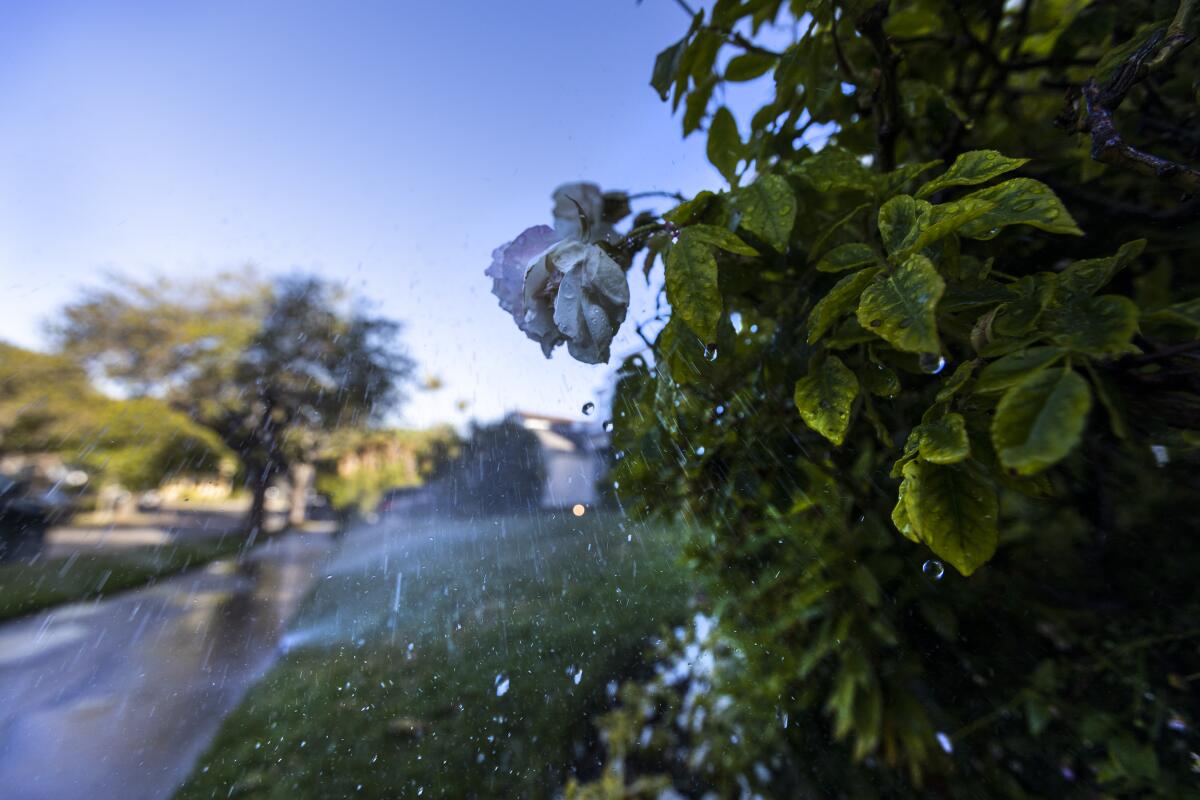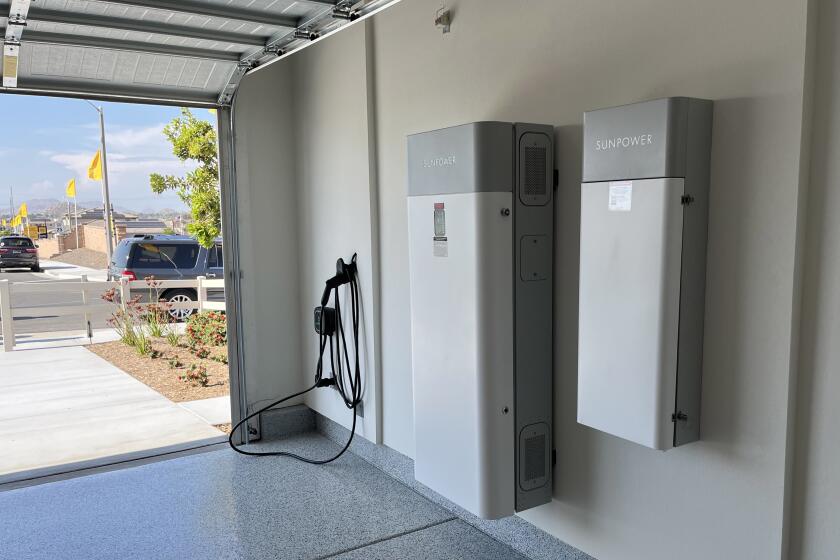A class-action lawsuit offers free cash to many L.A. Sanitation customers. Are you eligible?

- Share via
The city of Los Angeles has agreed to pay millions of dollars in refunds for six years’ worth of allegedly inflated sewer charges. And if you’re still a customer of the city’s sewer services, here’s the good news: If you qualify, your refund will come to you automatically.
If you’re a former customer who qualifies for the refund, you’ll have to apply for the money. How large a refund you receive will depend on how much water you used during the falls and winters from May 2016 to June 2022.
For the record:
10:24 a.m. Aug. 10, 2023An earlier version of this article incorrectly stated that the Los Angeles Department of Water and Power had agreed to settle a lawsuit brought against it for overcharges it levied for sewer use. The city of Los Angeles agreed to settle the lawsuit, which accused L.A. Sanitation of overcharging customers for sewer use. The LADWP was not involved in the lawsuit, the alleged overcharges or the repayments.
How do you know if you qualify?
The money — which comes from a settlement to a class-action lawsuit that Superior Court Judge Stuart M. Rice has preliminarily approved — is solely for current or former residential customers whose homes have or had one meter tracking all their water use, rather than separate meters for indoors and outdoors. And within that group, the settlement applies just to people with four or fewer units not classified by L.A. Sanitation as “multiple dwellings.”
At issue is how the city estimates its customers’ use of the city sewers. With no meters on houses directly measuring sewer use, L.A. Sanitation has to estimate that amount. That estimate is based on how much water a customer receives from the Los Angeles Department of Water and Power, and it relies on a crucial assumption: that the sewers receive all the DWP-delivered water a customer uses indoors and none of the water used outdoors.
For homes that rely on a single meter for their water use, however, the city has to come up with a second estimate, this time for how much water these customers use indoors versus outdoors. The outdoor amount is then excluded from the sewer charge. In a winter with a lot of rain, the city assumes that none of its customers use DWP water on their lawns or outdoor plants — all of it is used indoors, and all of it winds up in the sewers.
A judge has thrown out the surcharge on LADWP water bills that was used to subsidize low-income customers.
Most winters don’t have a lot of rain, though, so that’s when the city relies on something called the Dry Winter Compensation Factor to ratchet up the amount of estimated outdoor use. That, in turn, lowers sewer bills.
According to the lawsuit, the Los Angeles municipal code says the compensation factor is supposed to kick in when too little rain falls in the winter to eliminate the need for outdoor watering. But L.A. Sanitation based the multiplier not on rainfall data and the amount of water needed for outdoor use, but on financial projections and the amount of revenue needed by the city, the lawsuit alleges.
As a consequence, the lawsuit alleges, the city underestimated outdoor water use, overcharging customers whose outdoor use wasn’t metered separately.
In agreeing to settle the case, the city didn’t admit to any of the plaintiffs’ accusations. Instead, it established a $57.5-million fund to cover the settlement. When attorney fees, court costs and taxes are paid, the rest of the fund will be divided among L.A. Sanitation customers after the settlement receives final approval. A hearing before Rice is set for Dec. 20 in Superior Court in downtown Los Angeles.
With another heat wave straining California’s electrical grid, it’s a good time to think about how to keep the power on during a blackout. There’s no cheap fix.
If you want to object to all or a portion of the pending settlement, you must do so in writing, and the claims administrator must receive your objection by Nov. 29. For more information on how to file an objection, see the notice on the settlement site.
If you are an L.A. Sanitation customer eligible for a refund, how much you receive will depend on two variables: how many people qualify for refunds (only people who were overcharged by a total of $10 or more are eligible), and how much you were overcharged. The fund will be divided among the qualified claimants on a pro rata basis, depending on how much they were overcharged. In other words, a customer whose overpayments amounted to 0.01% of the total overpayments would receive 0.01% of the settlement fund.
If you’re a current customer and want to accept the settlement amount, you don’t have to apply for your refund. According to the settlement website, the settlement’s claims administrator will send a check to the address the city has on file after the court gives the settlement its final approval and any appeals are resolved.
If you are a former customer, you’ll have to submit a claim form. You can do that online through the settlement website, or you can have a form mailed to you by calling the claims administrator at (877) 390-3368.
And if you would like to opt out of the settlement — which you would have to do if you want to file your own lawsuit against the city over this issue — you must do so in writing, and the claims administrator must receive your request by Nov. 29. Instructions on how to do so can also be found in the notice on the settlement website.
About The Times Utility Journalism Team
This article is from The Times’ Utility Journalism Team. Our mission is to be essential to the lives of Southern Californians by publishing information that solves problems, answers questions and helps with decision making. We serve audiences in and around Los Angeles — including current Times subscribers and diverse communities that haven’t historically had their needs met by our coverage.
How can we be useful to you and your community? Email utility (at) latimes.com or one of our journalists: Jon Healey, Ada Tseng, Jessica Roy and Karen Garcia.
More to Read
Sign up for Essential California
The most important California stories and recommendations in your inbox every morning.
You may occasionally receive promotional content from the Los Angeles Times.













